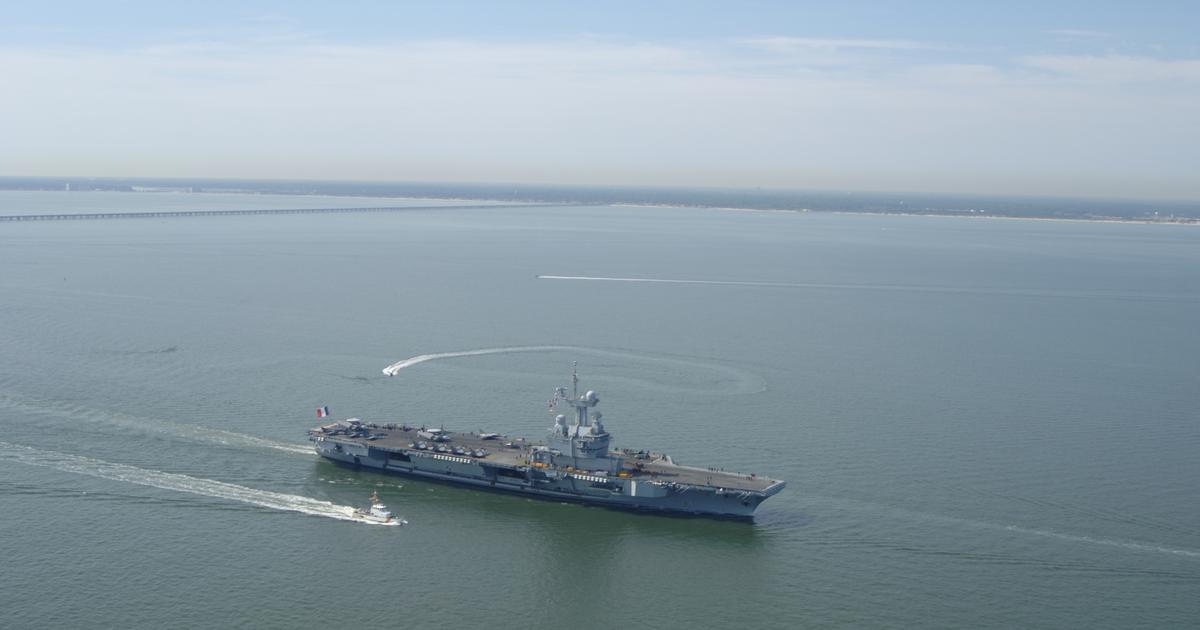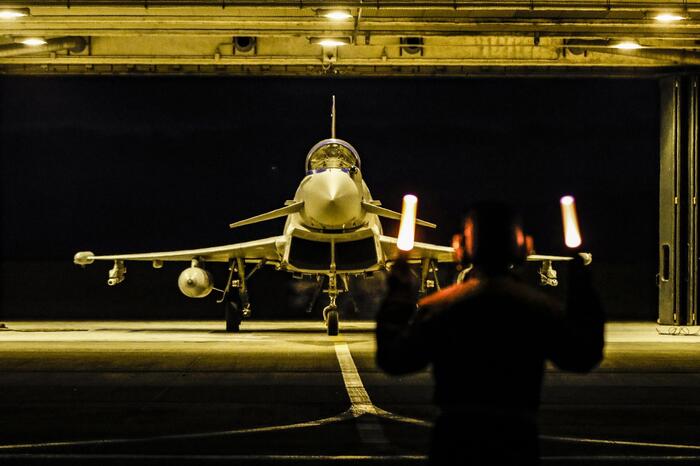Anastasiia Bondar finds it unreal to be talking about a hot war in Ukraine again or having to think about contingency plans. Until this Monday, he had tried to isolate himself from the echo surrounding the Russian threat. But the announcement of the evacuation of the families of the diplomats of the United States, the United Kingdom and Australia in their legations in Kiev has made that temperance be reconsidered. "Now the crisis seems much more imminent, even the idea that Russia is going to come here and attack Kiev," says this marketing consultant who works from home, in the center of the Ukrainian capital, with her husband, a graphic designer. They have two children aged eighteen and now they are thinking of sending them with his mother to Lviv, a charming city in the west of the country.
“If things get complicated I would stay there with them because I can work anywhere, but I'm not going to give in to panic and leave my house, my life. Enough has already been stolen from us in this war,” says Bondar, 34. “War is terrible, but so is uncertainty, it feels like constantly having an annoying bumblebee in your stomach,” he concludes.
Since the conflict in Donbas with the pro-Russian separatists supported by the Kremlin stalled on an immobile front line, Ukrainian citizens have struggled to find a point of normality and everyday life in the fact that this country of 40 million inhabitants welcomes Europe's last war. Since its independence from the Soviet Union in 1991, Ukraine has experienced several crises, a very serious economic recession in the late 2000s, a couple of revolutions (in 2004 and 2013) and the armed conflict in the east. And he has found his identity mostly tilted towards the Europeanism that ignited the massive protests nine years ago that ended up bringing down the government of pro-Russian Viktor Yanukovych, who had refused to sign an association agreement with the EU,and they have led to this security crisis created by Russia, which aspires to keep Ukraine under its sphere of influence. These days, believes the artist Sergei Zakharov, the atmosphere has a different color.
More information
Key dates of the conflict between Russia and Ukraine: chronology to understand the crisis
The growing concentration of Russian troops along the borders with Ukraine and the constant military display of Moscow, coupled with the heightened alerts of some Western countries, gives a veneer of urgency.
“The war has been here for a long time, but not everyone has understood it until now.
Some are beginning to realize the threat we face,” he says with a shrug.
Zakharov has experienced the conflict firsthand.
Sometimes known as the Ukrainian Banksy, at the start of the war he was imprisoned for two months in his native Donetsk for his satirical work, in which he portrayed the Moscow-backed separatists who now control the city.
In his studio in the working-class neighborhood of Troyeshina, in Kiev, he does not stop moving from one place to another, placing material, crammed with his canvases where he captures his irreverent art.
"When they released me, almost all of my ribs were broken," says the artist, who has published his experience in the form of a graphic story, already translated into several languages.
Zakharov says that he always wanted to be a painter, but also that now he is willing to pick up a gun.
“This may be the spigot that finally ends the war, we may see an escalation, but it may be as much a battle on the ground as it is a diplomatic fight.
Today's wars take different forms”, he philosophizes.
The Ukrainian government urges citizens to remain calm.
President Volodymyr Zelenskiy, a former comic actor who swept the 2019 elections with an anti-corruption speech and a promise to end the war in the East, assured on Monday that, despite announcements of the evacuation of Western embassies, there is no reason to panic.
With the hashtag #we are prepared, many Ukrainians have shared these days on social networks their action plans, advice on how to act in an emergency and even a kind of self-help lists on how to psychologically face the security crisis or how to talk about it with children. The fear is not only of another Russian invasion, but also of economic distress, says Vasili Kovalev, who runs a takeaway coffee stall in Kiev. He says that he fears that the situation will also affect the market, which has already suffered from the pandemic. However, there has still been no rush to the banks to withdraw savings, in dollars or euros. Prime Minister Denis Shmygal assured on Monday that there are no threats to the national economy, but acknowledged that it may be affected by "disinformation."“The Russian Federation is actively working to destabilize the internal situation in Ukraine. It is important to assess the risks and remain calm," a Foreign Ministry spokesman said.
Orysia Lutchevich, director of the Chatham House Ukraine Forum, believes that part of Moscow's strategy also includes "creating chaos."
"Dissemination of contradictory news, information warfare and destabilization maneuvers, such as the recent information about attempts to place a Moscow puppet government in Kiev, are in the usual script of the Kremlin," says the expert.
“Not only does it try to unbalance the country but also undermine the morale of citizens,” he adds.
Also María Avdeeva, head of Research at the European Association of Experts and disinformation expert, speaks of "psychological pressure" as part of the strategy against Ukraine.
diplomatic front
Russia accused the West on Monday of being responsible for the escalation and publishing "false" claims. "All this is due to the actions of NATO and the United States and the information they spread," said Kremlin spokesman Dmitri Peskov, who assured that President Putin wants to focus on diplomatic talks and "avoid a similar tense situation in the future".
Although fragile, the diplomatic talks between Russia and the United States, whom the Kremlin has chosen as the ignored interlocutor of the European Union, continue. Washington is expected to send to Moscow these days its reflections on the Russian proposals to NATO, in which it demands guarantees that it will not expand to the east and withdraw from Eastern Europe, where it has no bases but does have multinational rotations in Poland or the Baltic countries. The United States and the Atlantic Alliance have already warned that such demands, which would mean withdrawing Ukraine's membership invitation, clash with their open-door policy.
US intelligence, which is closely following the situation, and more so since the concentration of Russian troops around Ukraine began in November, believes that Putin has not yet made the decision to launch another military intervention in Ukraine, where annexed the Crimean peninsula in 2013 with a referendum not recognized by the international community. Meanwhile, this Monday, the British Government spoke of the possibility of a "lightning war".
Viktoria Savchenko believes that the decision to evacuate embassies is part of the political and diplomatic calculations of those talks with Moscow.
This 29-year-old woman is more concerned about how all this “noise” is affecting the country.
He says that in recent weeks, for example, bomb warnings have become frequent in schools and some public places: "It's all a plan to intimidate the population, but we're not going to let it go," he concludes.
Follow all the international information on
and
, or in
our weekly newsletter
.
Exclusive content for subscribers
read without limits
subscribe
I'm already a subscriber

/cloudfront-eu-central-1.images.arcpublishing.com/prisa/NCFIS2ULNNE7HMGKXQDJN6YOCU.jpg)





